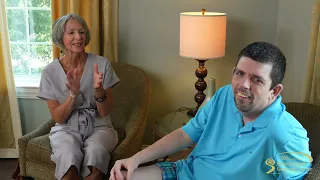
Today’s post is a guest submission from Cathy Stevens. Cathy and her husband, Erik Ching, live in Greenville, SC with their three children, Anders, 8,
Halle,7, and Evan,3. Halle, has a mitochondrial disorder and is cared for through GGC’s metabolic clinic.

Seven years ago, when my daughter Halle was born with a rare genetic disorder, our family’s life was turned upside down. Thank goodness for doctors like
Dr. Champaigne at GGC,
nurses, therapists, caregivers and family who have worked with us to help Halle live life to the best of her ability. We simply adore our child who
has special needs.
Somehow in my 30+ years of life prior to Halle’s birth I had never been up close and personal with seizures, even though they are quite prevalent in the
community.
After watching and helping Halle live with seizures for the past seven years I can tell you – they are awful.
Watching my child begin to jerk and moan – and sometimes stop breathing – has been a terrible thing to have to witness, and there are so many other brave
families out there dealing with this on a daily basis.
My husband and I ventured into the realm of seizure medication with wonderful geneticists and neurologists who helped us learn how to treat and cope with
them. It’s so terrifying to have to give your 10-week-old medication that sedates, dulls the brain and has the possibility of permanently damaging
peripheral vision.
When your child has a disability, there are things along the way that you just have to get used to. Though it is never easy, our family has learned to
live with the fear of seizures, and we have seen than we all – especially Halle – can handle more than we ever imagined.
With the help of our neurologist, a few years ago, we found a combination of two traditional seizure medications that controlled her seizures pretty well,
though not perfectly. Since we will do anything to help our daughter, when the news started showing stories about cannabis (medical marijuana) as an
option for seizures we, of course, wanted to try.
With the support of our neurologist we started adding hemp-derived cannabis oil, which is legal in South Carolina, to her daily medicine regimen. We also
conducted an EEG just prior to starting the cannabis oil and then again six weeks later. The results were positive. Halle’s number of seizures decreased
significantly. And, the EEG showed fewer spikes and seizures. This was great news! But hemp contains much less cannabis than marijuana, and so ultimately
to help Halle and many other children, we need to legalize medical marijuana in South Carolina.
My husband and I are very moderate and would never say that cannabis is a magic bullet for seizures. Like all medications, it helps some children and not
others. Yet, it does indeed work for some, and so, without a doubt it should be an option for doctors to recommend and patients to access. It should
be a decision made between doctor and patient.

All of this is how I became involved in the medical marijuana advocacy movement in South Carolina, which is funny since I am from the ‘Just Say No’ generation.
I never expected this to happen but I believe strongly that marijuana does have some medical benefits, and more and more studies show this.
Along with the support of many other families who have children with disabilities and seizures, we have a bill called the South Carolina Compassionate
Care Act that will help us get medical marijuana to those who need it without increasing recreational usage.
I firmly believe we are smart enough in this state to help those suffering with seizures without promoting the spread of recreational marijuana usage.
A big part of our success will be through educating our representatives and communities on this topic.
With the legislative session over for this year, the many advocates working on this bill are regrouping and preparing for next year. We’d love for you
to join us in our efforts to help those among us who cannot advocate for themselves.

Check out what this organization is doing to support the cause: http://www.cannabisforward.org/
For additional information, visit https://compassionatesc.com/or https://www.facebook.com/groups/SCcompassiongrp/
*Guest posts on The Gene Scene cover a variety of genetics-related topics. They represent the opinions of the author and not necessarily those of the Greenwood Genetic Center.
